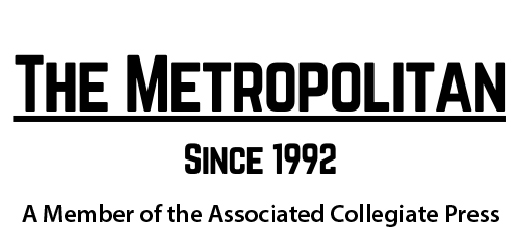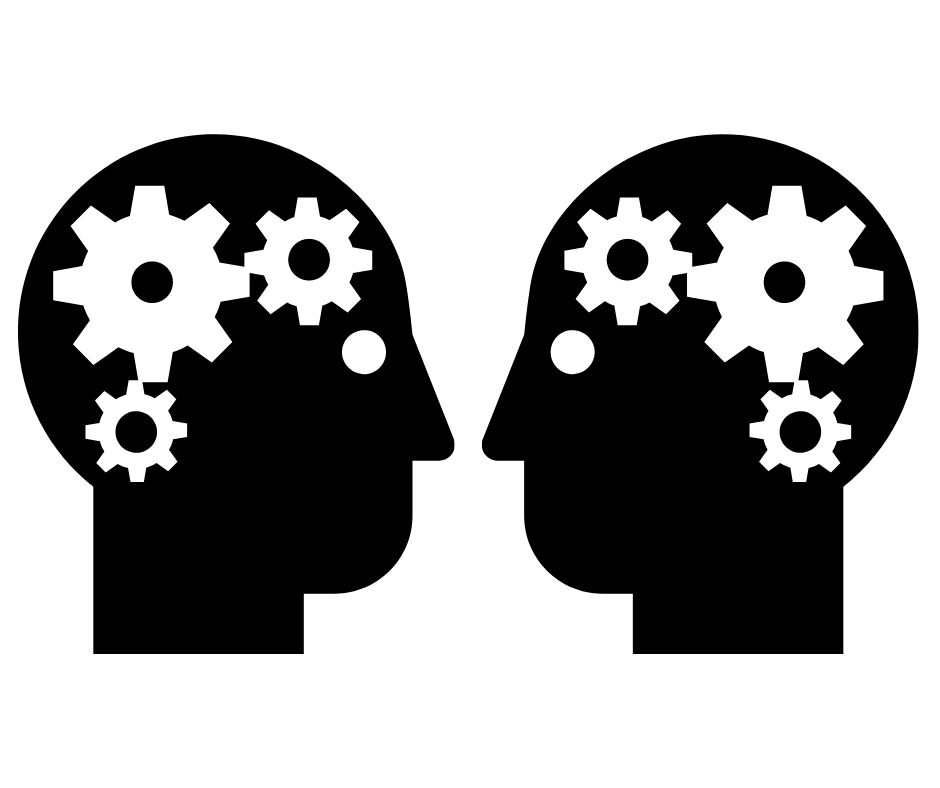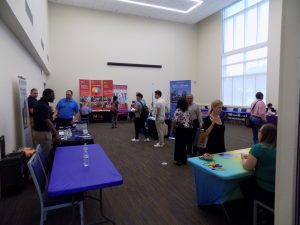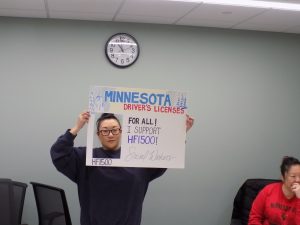Rachel Hagen
Share:
Sarah McVicar already has an undergraduate degree in philosophy—and an MBA. But she’s back in school, finishing her first semester in Metro State’s master’s program in co-occurring disorders recovery counseling.
Like many of her classmates, her interest in the program was based on a passion to provide mental health treatment.
“People in this field aren’t in it for the money,” she said. “For the most part, they really care about the work.”
The Co-occurring Disorders Recovery Counseling (CODC) program prepares counselors to treat individuals who struggle with both mental illness and substance abuse.
“Having both [diagnoses] is more common than I think many people realize,” McVicar said. “I believe it’s the norm rather than the exception.”
Most students in the counseling program are working in addition to attending classes, and many have extensive employment backgrounds in mental health.
Sandy Clark received her undergraduate degree in human services from Metro State. She brings 27 years of experience to her graduate classes.
“I started in detox,” Clark said. “I’ve worked in inpatient, outpatient, chemical dependency. I’ve worked locked psych units. I’ve opened three jail treatment programs in the state.”
Combating compassion fatigue
A common concern in clinical psychology is compassion fatigue, which is characterized by an indifferent attitude towards clients due to overextension.
Clark and McVicar both described compassion fatigue as the No. 1 occupational hazard.
Because the threat of compassion fatigue is significant, a variety of tools are taught in the CODC program to help counselors cope with overwhelming situations.
Dr. Therissa Libby, the director of the program, teaches HSCD 603, Ethics and Professional Practice. She puts especial emphasis on self-care and self-monitoring.
Dr. Libby began class on Saturday, Nov. 17 with five minutes of individual meditation.
Her agenda for the day? To get students to share preferred ways to engage in self-care and identify their own “red flags”—how their personal stress manifests itself.
For Libby’s graduate students, self-care meant painting, knitting and acting. Their red flag that indicated skyrocketing stress ranged from sleep deprivation to decreased motivation.
Celebrating cultural diversity
Multicultural psychology is a growing and influential subfield of psychology that prioritizes an intersectional approach—something the Metro State’s CODC program has embraced.
“There’s been a lot of emphasis on the need for cultural sensitivity and cultural humility,” McVicar said. “We’ve spent a great deal of time reading, discussing and reflecting on privilege and oppression and the important role it plays in the counseling practice.”
Clark added that diversity is deeply integrated into every class in the program.
The emphasis on cultural competence and sensitivity, plus the community engagement opportunities, has been the most rewarding part of the program for Clark.
“I’m really proud that we’ve been an advocate in the community for co-occurring disorders, counseling and treatment,” she said. “We’ve hosted conferences and collaborated with other community organizations.”
Students cite deep-seated camaraderie among classmates. They generously share—and listen to—out-of-the-classroom experiences and connect it to course material.
That camaraderie is not all that surprising really. These graduate students share the marks of good counselors: compassionate, communicative, and on a common mission to shatter the stigma of addiction and mental illness.
“I’ve always wanted to give back and make a positive difference in a meaningful way,” McVicar said. “The most rewarding thing is probably the incredible opportunity this training will give me to make that a reality.”
The CODC program consists of 60 credits, including research and field experience. Full-time students can complete the program in three years; part-time students can finish in four years.
Graduates are eligible for Minnesota licensure as alcohol and drug counselors, and professional counselors.
For more information on Metro State’s Master of Science in Co-occurring Disorders Recovery Counseling, contact Professor Therissa Libby at therissa.libby@metrostate.edu.




